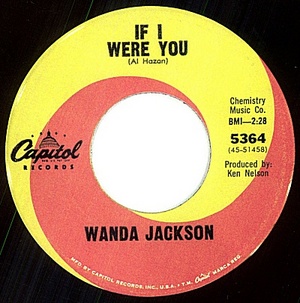If I were you...
 A couple years ago I was giving Simon some fatherly advice which started "If I were you..."
A couple years ago I was giving Simon some fatherly advice which started "If I were you..."
He listened patiently and informed me that I was incorrect because, "if you were me then you would think like I do and act like I do."
Can't argue with that logic.
Similarly I realized the other day that in any conditional (if A then B) if the antecedant (A) is false then the consequent (B) may or may not be true.
Therefore, when someone begins a sentence with the patently false antecedant "If I were you" you can pretty much ignore anything they say because there is no truth value to it.
Now there's logic you can use.

Comments
I actually remember saying that. Wasn't it about something in World of Warcraft?
Posted by: Simon | July 20, 2007 2:27 PM
Probably, Simon. Very probably.
Posted by: ironic1 | July 20, 2007 2:46 PM
My friend, Russ, who teaches formal logic, points out to me that the truth vaule of any conditional in which the antecedent is false is true, regardless of the truth value of the consequent. However, if the antecedent is false, the consequent is still indeterminent, even if the overall statement is true.
So, when I say that "there is no truth value" to what they say, this is not correct. The truth value of the statement is true since the antecedent is false. However, the consequent may or may not be true.
So what I really should have said was when someone begins a conditional with a false antecedent you can ignore the consequent because its truth value cannot be determined.
Yep. I love logic.
Posted by: ironic1 | July 21, 2007 12:47 PM
I hated logic. Even after working for three yrs with a bunch of philosophers/logicians and transcribing the writings of another, it seemed very goofy to me, and distinctly unhelpful when it came to situations outside of office debates. I like the notion of the indeterminate consequent, however; I was never taught that in the very rudimentary logic training that I had, and I found it so frustrating to deal with the "if A, then B" rule because, obviously, that doesn't hold at all. I can make a true statement, and then make any stupid conclusion from it that I want, even one that makes sense to me and many others, and it is still false, irregardless. Also, an indeterminate conclusion is not realllllly indeterminate. It can be tested and proven true or false. I understand that logic has its own modes of expression, and its own definitions of true and false, but I find it a very frustrating discipline. ( As for my former colleagues, whom I love dearly, they were so wrapped up in their arguments over Peirce and pragmatism that they forgot the REALLY "pragmatic,"and logical notion that if A) they take 7 more years to finish a book that they told the NEH should be at the press by 2001 (and which I had some ready to have final layout in, oh, 2000, then B) the NEH would finally get tired of it and C) drop their funding. As they discussed the Platonic world of ideals as if it were really out there, somewhere, this gritty bit of realism somehow escaped them. I miss that job.
Posted by: Leah | July 28, 2007 8:01 AM